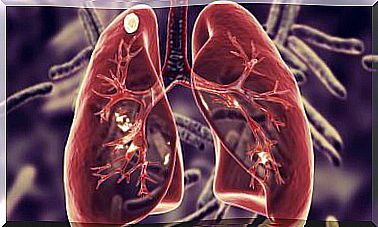6 Effects Of Psychological Abuse That You Should Know
The effects of physical abuse are easy to see, and even to appreciate. However, when we talk about psychological abuse, manipulation, abuse and emotional aggression, things change.
It cannot be objectified, nor can it be seen with the naked eye, nor can it be radiographed. Such is the complexity, such the invisible impact it leaves, that the victim is often incapacitated when it comes to asking for help.
How can I explain it, how can I expect them to believe me if what hurts is self-esteem, our own identity and our most intimate and private being?
Is not easy. In addition, many times, there are no adequate mechanisms for those who suffer psychological abuse to take the step and report their reality. Sometimes they don’t dare. They are afraid and fear the possible consequences… Especially not being believed .
Psychological abuse is devastating and cuts off entire lives for one main reason: it comes from close people, people we trust and often even love.
Let’s see now what impact this dimension has on our mind and emotions.
1. Feeling of shame and guilt
If there is something as devastating as it is negative, it is to blame ourselves for everything that happens to us.
Those who see psychological manipulation from the outside, tend to think that the abused person allows himself to be mistreated, that he is weak because he allows himself to be dominated, damaged and controlled.
This is not the case, the person who suffers psychological abuse is subjected to emotional chaos and a very complex situation from which it is not so easy to get out. It is common for you to feel ashamed of yourself thinking about how you got there.
She often feels unable to react, alone and isolated; that she cannot by herself find her way out of that personal abyss.
2. Memory loss or feeling of unreality
When we are subjected to a high level of anxiety, stress and constant suffering, it is common for brain structures related to memory, such as the hippocampus, to lose connectivity. This is suggested by this study from the Austral University of Chile.
It is not a neuronal disease. The person has memory lapses, cannot concentrate, or make decisions with a clear mind. You cannot think clearly and may have feelings of unreality about your situation.
It is a defense mechanism by which the mind establishes a distance from reality to depersonalize it, to think that “this is not happening to me.”
3. Emotional instability, strong ups and downs

There are times when it is thought that things can change, improve and that it will be possible to regain happiness, integrity and balance.
However, soon, the abyss and relapse arrives. Frustration, anger, rage and, instantly, despair and fear appear.
It is common to experience a complex kaleidoscope of sensations and emotions where the person is aware that they are not in control of their life.
4. Abuse and recurring physical pain
The victim of psychological abuse is not physically assaulted, but the suffering that sooner or later is experienced in the body itself hurts in the same way.
Chronic emotional discomfort ends up manifesting itself in the form of fatigue, insomnia, headache, muscle and joint pain, poor digestion, infections contracted as a result of a weakened immune system …
5. The feeling that there is “no way out”
Learned helplessness is another common symptom. The person who suffers this type of abuse will come to think at a certain point that nothing they do will help. This is stated in this study carried out by the Mental Health Services of Majadahonda (Madrid).
Often times, they go so far as to tell themselves that no word, no action or change, nothing they put in motion will make that mistreatment stop.
That is why it is so important to respond responsively and sensitively to anyone who, in some way, is giving us clues that they are suffering some type of abuse.
With phrases like “but what are you saying to me?” or “Aren’t you exaggerating a bit?” we will only make the victim depressed and withdraw even further. We must support it.
6. Suicidal thoughts

The moment the person tells himself that there is no way out, suicidal thoughts begin to arise. At first they are just sudden ideas, momentary wishes. However, the fateful moment may come when it is seen as the only solution to the problem.
The environment needs to be very sensitive to all indicators, words, gestures, behaviors.
Because psychological abuse, beyond what we might think, does leave traces, it does leave obvious marks on people’s behavior.








